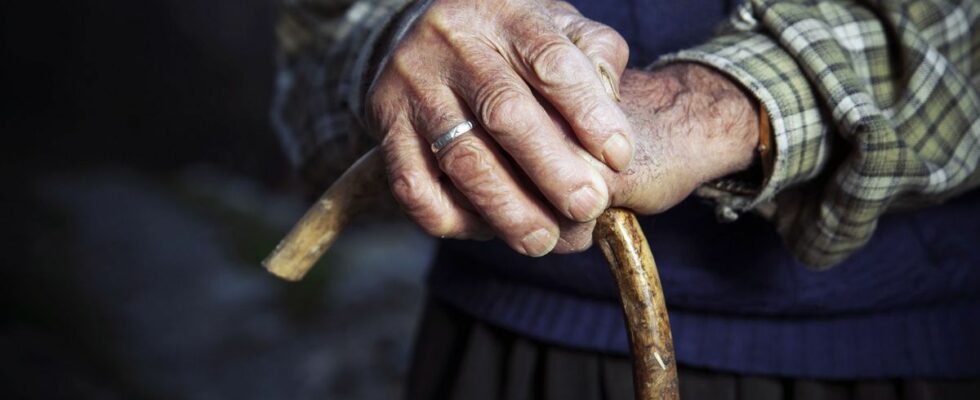Published on
Updated
Reading 3 min.
Since her stroke, Julia, 78, has felt “very melancholy”. Every month, she receives a visit from a nurse from a mobile psychiatric unit, a system developed in Charente to facilitate access to care for the elderly.
“You are at home, with your husband. It’s not like before, but you are capable of doing things, you have to value yourself“, calmly asserts Nadia Généraux, nurse at the Camille Claudel psychiatric hospital.
Julia – a pseudonym she chose to remain anonymous – has been followed since July by Nadia Généraux and the mobile psychiatric team of this establishment, the only public of this type in Charente.
Every month, the septuagenarian tells him about her “loss of morale”, her “fear of being alone”, her wish to “leave, so as not to bother anyone anymore”.
Created in 2012, the Goya mobile team is a “system of +moving towards+ prevention and access to care in terms of mental health“, explains Pierre-Clément Kollen, psychiatrist to Camille Claudel.
The team works throughout Charente with patients over 70 years old. It can also be consulted by professional caregivers in EHPADs in the event of difficulty with a resident.
When she worked in the factory, Julia could “running two machines at the same time, the boss had never seen that!“, says Francis, 75, her husband, who has also chosen an assumed name. “My wife is a fighter,” he adds firmly.
But since his stroke, “it’s not going well”. Julia struggles to walk and has “no taste for anything anymore”. She, who was so flirtatious, no longer even wants to get dressed in the morning.
Because of his illness, the couple left the city to live with their son in the Charente countryside.
Francis takes care of his wife as best he can, repeats that he “don’t complain” because “she did so much for our family“.
Despite the antidepressants prescribed by the psychiatrist, Julia’s melancholy does not go away. Except when she remembers her “youthful memories”: her childhood in the fields, the meeting with Francis, at the local “dancing” in Charente.
“His family didn’t want me to marry him, I was a rugby player, a thug!“, said Francis. Sitting next to him, Julia smiled.
Psychological suffering
The Goya mobile team intervenes at the request of a loved one, a doctor or the patient themselves.
After an initial visit by one of the four nurses, a care plan is defined by the multidisciplinary team made up of a psychologist, a psychiatrist, a social worker, a pharmacist advisor and a nurse. advanced practice, which renews prescriptions and adapts drug treatments.
Every week, Goya receives ten requests on average. Nurses make two visits per day.
“We offer them a space where they can verbalize their suffering.“, explains Nadia Généraux at the wheel of her company car. “With Goya, it is no longer up to patients to adapt to the institutional framework“, she adds.
Aging crisis
The mobile team is part of “the ambulatory shift in psychiatry, complementary with its historical missions, hospitalization and consultations in psychological medical centers“, explains Pierre-Clément Kollen.
“Hospitalizing an elderly person can be harmful“, according to Isabelle Varenne, nurse at Goya, due to “the change in living space and the anxiety that this can cause”.
“Precipitating factors, such as illness, bereavement, or loss of mobility can trigger psychotic, anxiety or depressive disorders in older people.“, specifies Doctor Kollen, who speaks of an “aging crisis”.
However, the mental health of seniors remains little considered. “We rationalize their suffering by saying to ourselves +That’s how it is, they are old+“, explains Florence Jourdain, health executive at Camille Claudel. But “there is no age to suffer“, warns Nadia Généraux.
Carers, weakened by the care of their loved ones, can also benefit from Goya’s support.
Just like his wife Julia, Francis spoke with Nadia Généraux and met the psychiatrist.
“It’s important to take time for yourself“, the nurse advised him. So for May 1st, he went to “find some friends” and “eat a snack” for a day.
